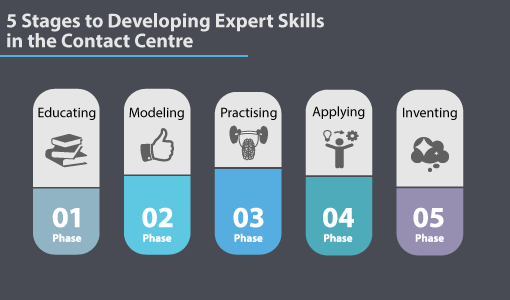What is the difference between your top performers and the rest? Do you know how much more effective the top performers are?
Consider an article in the Journal of Applied Psychology that examined productivity differences between the top 1% of all performers and average performers in the same organisations. (John E. Hunter et al., 1990). For complex jobs, top-level performers were 125% more productive than average performers.
Even more striking was the gap between top-level performers and those in the bottom 1%. For medium-complexity jobs, top-level performers were 1,200% more productive than bottom-level performers. For high-complexity jobs, the gap was so profound it was unmeasurable.
Don’t Accept the Gap
Most people accept the gap. They don’t question the bell curve when it comes to performance. They think it’s inevitable for some advisors to be superstars, most to be average performers, and well, there’s that bottom 20 or so percentage that might never get it.
I’ve never been willing to accept this scenario. I think we can do better. I think if we do our job right we can close the gap and shift the bell curve so it only applies to experts. Some people will be super-experts, most will be average experts and a small percentage will be lower-level experts – but they will be experts nonetheless.
For more on this issue, read our article: The Quality Problem: Good Advisors Stay Good – Average Advisors Stay Average
What It Means to Do Our Job Right
To do our job right we must address the factors contributing to the gap. Certainly, there are many reasons for the gap, including inadequate recruiting, hiring, orientation, initial training, personal motivation, reward and recognition, along with inadequate ongoing training and support.
Even though each factor must be addressed, one of our greatest needs is ongoing training and support. We simply are not doing everything we can to develop customer contact experts.
To do our job right, we must develop these experts by firstly setting clear expectations and then providing consistent, timely and accurate performance feedback.
Once this happens, the contact centre can focus on developing expert skill, which can be done by following the five-stage process.
The Five Stages to Developing Expert Skills
To ensure that the contact centre runs full-spectrum coaching, the programme must consist of each of the eight elements highlighted above and explained further below.

1. Educating
Educating means the coach teaches the foundation knowledge required to master the skill. The advisor reads, listens to tapes, fills out worksheets, and reviews the information with the coach once the lessons are complete. This is commonly referred to as the “book work” phase of coaching.
2. Modelling
Modelling means the coach demonstrates the skill required to be an expert. The coach demonstrates expert call handling through role playing (with the coach playing the role of the advisor), taking “live” calls and playing audio tapes of expert performance.
Call centre managers often ask if a call centre coach should be able to do the job of the frontline advisor. My answer is, yes!
Call centre managers often ask if a call centre coach should be able to do the job of the frontline advisor. My answer is, yes! You must be able to do a skill to model it. This doesn’t mean coaches are as efficient as advisors who take calls every minute of the day, but they can certainly demonstrate a quality interaction.
3. Practising
Practising means the advisor performs the skill in a simulated environment. This gives the coach the ability to control what “hits” the advisor and gives the advisor time to develop consistent habits and messages without worrying about the negative impact of a potential mistake.
Practising includes role plays (with the advisor playing the role of the advisor), computer simulations, and producing simulated expert tapes (where advisors write and audiotape expert scripts).
Recently, I asked several call centre managers: “How prepared are your team to handle the job immediately following initial training?” The answers ranged from “barely” to “more than 60%”. Many managers said there was no way to adequately prepare them… advisors simply must get on the phone and experience what it is like. I believe there are consequences to this approach.
One of the consequences is that you risk losing customers due to their interaction with inexperienced advisors. We need to design simulated training that covers everything an advisor will encounter once on the phone. We can’t afford to leave anything to chance. Just as airlines train in flight simulators, we, as call centre experts, need to train in call centre simulators.
4. Applying
The application phase takes place in the “real” environment of the call centre. It consists of four stages. The coach controls the frequency of the first three stages. The advisor controls the last.
The first stage is the partnering stage. The coach is sitting with the advisor in a highly interactive exchange. The coach decides who handles different parts of the call depending on the advisor’s demonstrated skill and comfort level.
The second stage is the support stage, where the coach is once again sitting with the advisor. However, in this stage, the advisor is in full control of the call and the coach only takes control if the advisor signals them to do so.
The third stage is a continuation of the support stage, except the coach is at a remote location. As in the second stage, the coach will not intervene unless there is a request from the advisor.
The advisor is asked to start taking control of their own learning process by recording the areas of the call that felt strong or those that felt uncomfortable.
The final stage is the polish stage. The advisor “goes solo” without coach intervention or monitoring. The advisor is asked to start taking control of their own learning process by recording the areas of the call that felt strong or those that felt uncomfortable. The coach spends time with the advisor after designated call handling sessions to “debrief” the experience.
5. Inventing
The invention phase is the last phase of skill development. The coach periodically observes the employee without any intervention. In this phase, the advisor creatively explores and resolves anomalies between what is supposed to happen and what appears to be happening.
By doing this, the advisor learns how to vary their behaviour, according to the context of the call and the personalities of those involved. It is in this phase that the employee gains the highest level of skill mastery.
Caution
There are several cautions about these phases of intervention. First, you may not be able to use all of them in your call centre. For example, you may find it difficult to trade off responsibilities on the same call as described in the applying phase.
Second, the phases are not linear. You don’t complete the coaching cycle by going directly from educating to modelling to practising to applying to inventing. You may find you are practising a skill and need to return to modelling or educating. The coach determines the intervention that expedites the embedding of the skill.
Key Skills to Coach in the Contact Centre
There are call centres centres who give feedback and do a lot of educating but not much beyond that. Many advisors are doing plenty of book work, but are not getting the chance to translate all their knowledge into skill.
Many advisors are doing plenty of book work, but are not getting the chance to translate all their knowledge into skill.
Generally, this is because the contact centre does not have enough time to coach. However, it is important that a coaching programme covers key areas – such as how to communicate clearly, make key observations and efficiently problem solve – in an effective way.
Here are some fun exercises that will help to develop each of these three skills.
An Exercise to Develop Clear Communication
Get all the ingredients and utensils together to make a peanut butter and jam sandwich, keeping everything in its container (bread in plastic bag, all the lids on, etc.). Then, have someone volunteer to instruct the team member on how to make the sandwich. No one in the room can help the volunteer during the first session.
The hardest part of this exercise is for the advisor not to assume anything. When the volunteer says, “Take a piece of bread”, don’t assume you know how to open the plastic bag. At that point the team member can take the bag at both ends and pull vigorously until the bag pops open and the bread flies all over the room, or they could instead say “I don’t know how to do that.”
The team member should keep going until the sandwich is made and then discuss with the group how it felt (to give the instructions and to observe someone giving instructions without being able to influence).
An Exercise to Develop Observing Skills
Ask the team to pick a partner. Ask everyone to face their partner and observe each other for thirty seconds. At the end of thirty seconds ask them: “How many people can tell me what you smelled during those thirty seconds?” Or “What noises did you hear during those thirty seconds?”
Why? Because this is a lesson in selective observation. Discuss with the coaches how this relates to what they observe about the team. What “instructions” are keeping them from “seeing” or “hearing” important things about their employees?
An Exercise to Develop Problem-Solving Skills
Collect brain teasers and read a brain teaser to the group and have them try to solve it, letting the team talk about whatever they want. Allow the conversation go wherever they take it.

Kathryn Jackson
Once the first teaser is solved, hand out a worksheet that walks the group through problem-solving steps (without calling it that). Then read another brain teaser, working through questions on a worksheet.
After this, talk about assumptions. Clarify words. Define what the team knows for sure and what are guesses. Get the advisors to write down what other information they would like to have and where they might be able to find it.
After several brain teasers, hopefully, the group will begin to walk through problem solving with ease.
For some ideas for how to create more time for activities like this, read our article: Being Super-Busy: The Modern Excuse for Not Coaching Staff
Do you agree with our stages to develop advisor skills in the contact centre? Or do you have any other exercises for developing important contact centre advisor skills?
Please share your thoughts in an email to Call Centre Helper.
Thanks to Kathryn Jackson at ResponseLearning Corporation
Author: Robyn Coppell
Published On: 28th Feb 2018 - Last modified: 5th Feb 2025
Read more about - Call Centre Management, Coaching, Soft Skills, Training



































